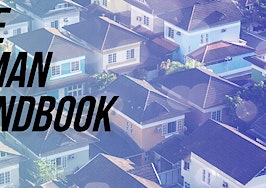A new report out from Redfin shows that despite general economic uncertainty stemming from the coronavirus pandemic and widespread social unrest, the number of bidding wars in the U.S. actually went up last month thanks to a housing supply shortage.
The report, released Monday, shows that in May 49.4 percent of the offers may via Redfin faced competition. That number is up from 43.9 percent of offers that faced competition during April. Boston ended up as the most competitive U.S. market in May, with 64.1 percent of Redfin offers facing competition compared to 56 percent in April.
Boston-based Redfin agent Delince Louis is quoted in the report saying the market in his area is “seeing a frenzy.”
Dallas, Washington, D.C., Salt Lake City, and Denver rounded out the top five most competitive markets. Redfin’s analysis looked at a total of 24 metro areas and found that there were 11 in which the majority of the company’s offers faced competition.
The report explains that a shortage of homes for sale is driving up the number of bidding wars, adding that “the number of listings on the market in May was 18.9 percent lower than the same period last year.”

Taylor Marr
Taylor Marr, Redfin’s lead economist, added in the report that bidding wars also increased because people looking for housing began to feel more confident as stay-at-home orders lifted and people got “more clarity around where the economy was headed.”
Redfin’s report is in keeping with other recent findings that suggest the housing market is making it through the pandemic without seeing major dips in prices or demand. For example, earlier this month CoreLogic found that prices continued to see significant year-over-year increases in April despite the pandemic. And the National Association of Realtors similarly revealed in May that prices during the first quarter of 2020 rose across the U.S.
In the case of this latest report, Redfin found that single-family homes were the most likely to see bidding wars. Louis, the agent in Boston, attributed the appeal of houses, as opposed to condos, to a desire on the part of consumers for more privacy.
However, despite these findings the future remains uncertain and the market is not necessarily out of the woods.
“But with coronavirus cases back on the rise in many states,” Marr added, “only time will tell whether that confidence is sustainable.”












